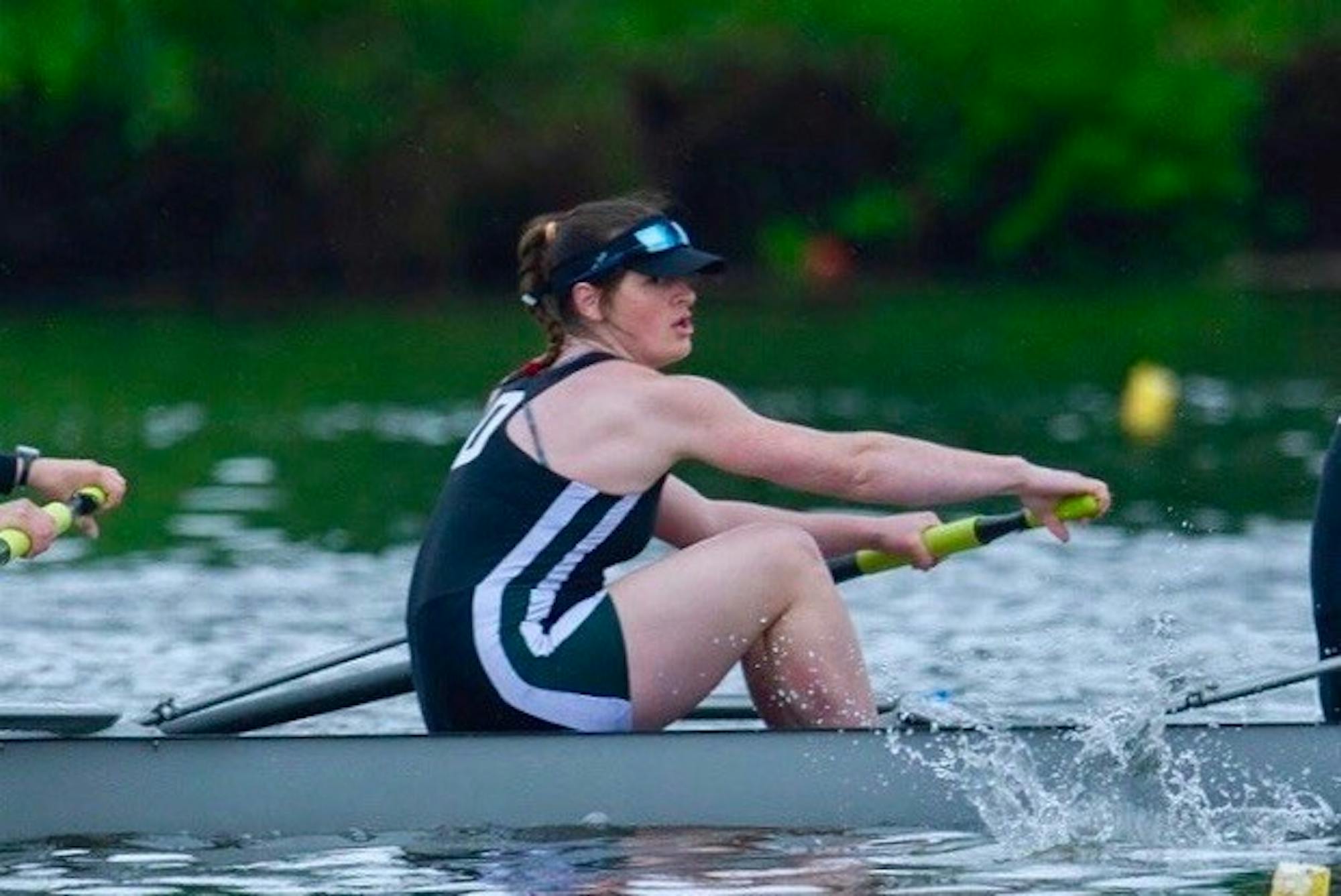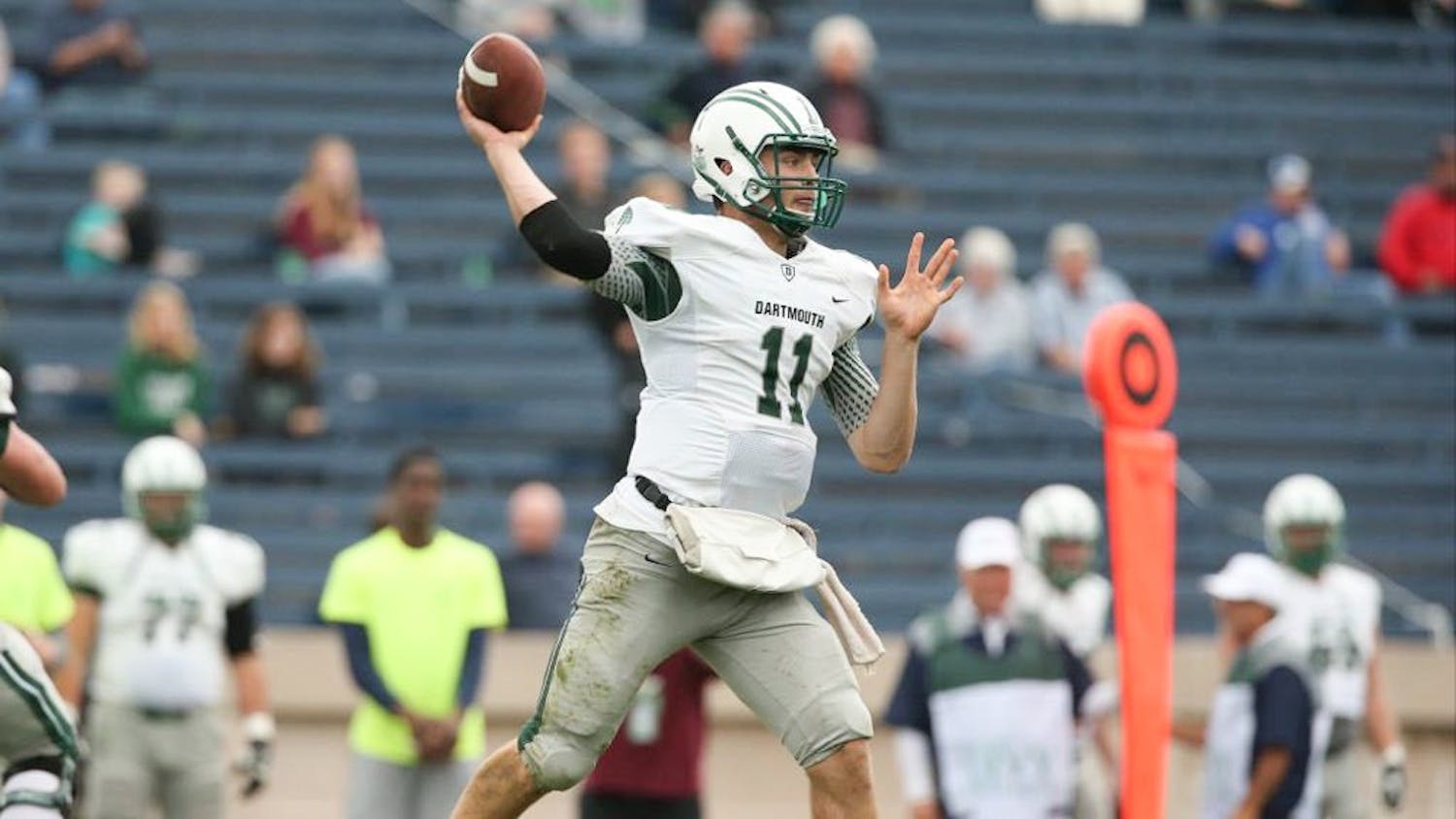Dartmouth offers its athletes the opportunity to play at a competitive NCAA level while engaging them in an academic community as rigorous as it is rewarding. Last week, a large number of Dartmouth’s athletic teams won Academic Progress Rate Public Recognition Awards — honors bestowed upon teams who land in the top 10 percent of APR’s scoring. APR rewards teams for maintaining high rates of “academic eligibility” and “retention” among their players. With 18 Big Green teams earning this award, Dartmouth tied Brown University, Columbia University and the College of the Holy Cross for the most teams honored.
The Big Green’s APR awards are in line with Dartmouth student-athlete recognition in years past. Dartmouth has topped the NCAA in student-athlete Graduation Success Rate in six of the past seven years, with a 99 percent GSR — the percentage of students who graduate within six years of starting college — for athletes who enrolled in 2011. Eighteen of Dartmouth’s 24 varsity teams had a 100 percent student-athlete GSR as of the most recent rankings, and only one team fell below 95 percent.
This article takes a look at three athletes who have been particularly successful in their academic pursuits, though many others share similarly impressive résumés and challenging schedules.
Lydia Blanchet ’19, a Nordic skier and earth sciences major, qualified for the U23 world championships in Switzerland last year, finished in the top 10 in every one of her races this past season until the NCAA championships and was recently named to the National Collegiate All-Academic Ski Team for the fourth time in her career. She said she is currently working on her senior thesis, examining how flooding varies by season in U.S. mountain regions.
The women’s Nordic team has consistently produced Olympians and All-Americans. All four classes had a skier land on the podium in a race last season, but Blanchet said she and her teammates work hard to excel in more than just athletics.
“There’s definitely a really good culture of working hard as athletes and working hard as students,” Blanchet said. “Everyone on the team is really engaged in their classes and definitely puts a lot into school as well as a lot into skiing.”
The academic grind carries on at full force during athletes’ seasons while their sports demand more from them. Much of the Nordic team misses the first week of class each winter for the U.S. Cross Country Ski Championships, and NCAAs invariably overlap with finals, according to Blanchet. To ensure she is prepared to accommodate this schedule, Blanchet said she emails her winter term professors each fall to let them know which weeks she will be away. Sometimes exams can be rescheduled, she added, but other times the skiers take their tests on the road, with coaches proctoring.
“When I am in season, and I think most people on the team are like this ... your focus gets narrowed down a little bit,” Blanchet said. “So, during the fall and the spring, I’m trying to balance school and friends and skiing, and then in the winter ... skiing and school are what I do.”
Balancing these responsibilities is difficult, but, according to Blanchet, it is part of what makes the experience of competing for the Big Green unique and rewarding.
“I wouldn’t want it all the time, but it is cool to just have that time of being hyper-focused,” she said.
Rower and English major Sophie Kamhi ’21 echoed Blanchet’s sentiments about the athletic-academic balance, emphasizing how much thought and effort goes into budgeting her time effectively.
“If I want to, let’s say, go to meetings on a Wednesday night, or do something with my friends, then I have to make sure I’ve woken up well before my 9L, prepped for class [and] done all my work, because I know I’m going to have practice for three hours in the afternoon,” Kamhi said. “It requires a lot of planning in advance, and honestly, being willing to say ‘no.’”
On top of regular practices, lifts and regattas, Kamhi said she still finds time for academics. Though she is yet to officially apply, she plans to complete an honors thesis in English and is hoping to do research with the English department this summer. Kamhi is on the College’s Third Honor Group.
David Emanuels ’19, a biomedical engineering major who walked on to the football team his freshman fall, described a day in the life of a student-athlete. During football season, Emanuels has morning lift and gets in an hour of homework in before 2:30 p.m., after which practice, showering and dinner push the rest of his studying to 8:30 p.m.
“I have to be much more diligent about how I go about balancing school and sports,” he said.
Emanuels has thrived academically during his time at Dartmouth, earning honors as a Rufus Choate scholar — meaning he is in the top five percent of the Class of 2019. He also earned himself a spot on the Google Cloud Academic All-America second team.
During his off-terms, Emanuels has continued to explore his academic interests, with multiple internships in STEM fields. During his sophomore winter, Emanuels did clinical research with the vascular surgery team at Harborview Medical Center in Seattle. Preceeding this, he interned at the vaccine and infectious disease department of the Fred Hutchinson Cancer Research Center in Seattle the summer after his freshman year.
“I was doing research on how two different infections, like lung infections, can produce different cytokine expression responses in patients, as well as doing an ELISA test to test different blood serum samples for specific antigens as part of a larger research project that had been going on for over a year at the time that I was there,” he said.
Academic success goes beyond individual achievements from students on Big Green sport teams, exemplified by 17 players from the national championship-winning women’s rugby team being named Academic All-Ivy players for this past fall. Each of these players had a minimum GPA of 3.7 and appeared in a least two Ivy League Conference Rugby games. Dartmouth players made up 37 percent of the 46 women selected in total.
With Big Green sports teams and athletes consistently recognized for their academic achievements, there is reason to believe success on the field will continue to be met with success in the classroom.



